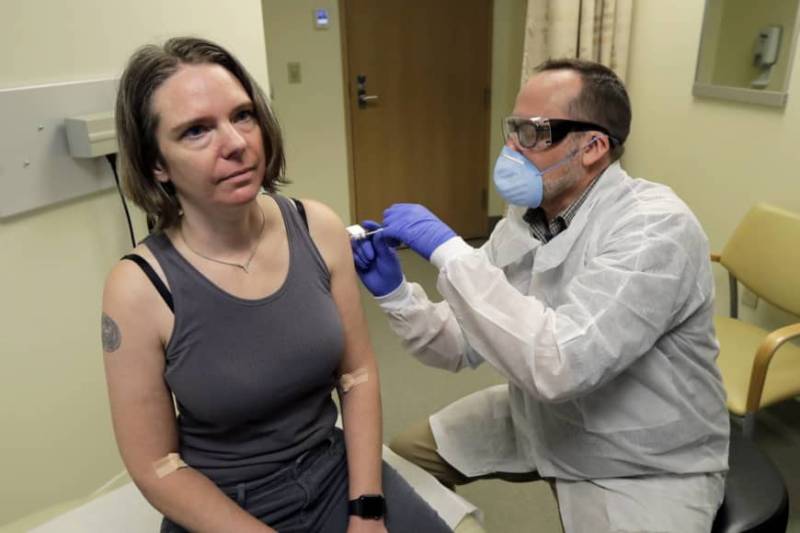
The US based biotech company Moderna has claimed that its COVID-19 vaccine yielded affirmative results after testing on volunteers. Moderna reported “promising early results on Monday from the first clinical tests of an experimental vaccine against the novel coronavirus performed on a small number of volunteers.”
Moderna’s vaccine candidate mRNA-1273 appeared to produce an immune response in the subject sample of eight people who received it similar to that seen in people recuperating from the virus. The subjects developed neutralizing antibodies that disable the virus from attacking human cells.
The company's chief medical officer says that if future studies go well, the vaccine could be available to the public by January. US President Donald Trump hailed the news saying “it’s incredible what they can do and I’ve seen results,” reported JapanTimes.
However, there are two questions that surround such “breakthroughs” which call for caution against hasty conclusions. First, does natural infection confer immunity to reinfection? The second follows from this dubious connection i.e. vaccination and immunity; how correlated the two are or how stronger is causality. It could be a far-fetched leap in judgment while asserting a vaccine candidate to be successful based on small sample. Most importantly, in addition to the fact that the trial was very small, the results have not been peer-reviewed.
The race for coronavirus vaccine is in between creation and distribution: with Oxford research team claiming to have vaccine ready for public use by September and licensing of five firms in India and Pakistan for manufacturing and distributing of potential antiviral Remedivir. Meanwhile, around 90 vaccines are under development worldwide in different countries by competing pharma companies.
Moderna’s vaccine candidate mRNA-1273 appeared to produce an immune response in the subject sample of eight people who received it similar to that seen in people recuperating from the virus. The subjects developed neutralizing antibodies that disable the virus from attacking human cells.
The company's chief medical officer says that if future studies go well, the vaccine could be available to the public by January. US President Donald Trump hailed the news saying “it’s incredible what they can do and I’ve seen results,” reported JapanTimes.
However, there are two questions that surround such “breakthroughs” which call for caution against hasty conclusions. First, does natural infection confer immunity to reinfection? The second follows from this dubious connection i.e. vaccination and immunity; how correlated the two are or how stronger is causality. It could be a far-fetched leap in judgment while asserting a vaccine candidate to be successful based on small sample. Most importantly, in addition to the fact that the trial was very small, the results have not been peer-reviewed.
The race for coronavirus vaccine is in between creation and distribution: with Oxford research team claiming to have vaccine ready for public use by September and licensing of five firms in India and Pakistan for manufacturing and distributing of potential antiviral Remedivir. Meanwhile, around 90 vaccines are under development worldwide in different countries by competing pharma companies.
